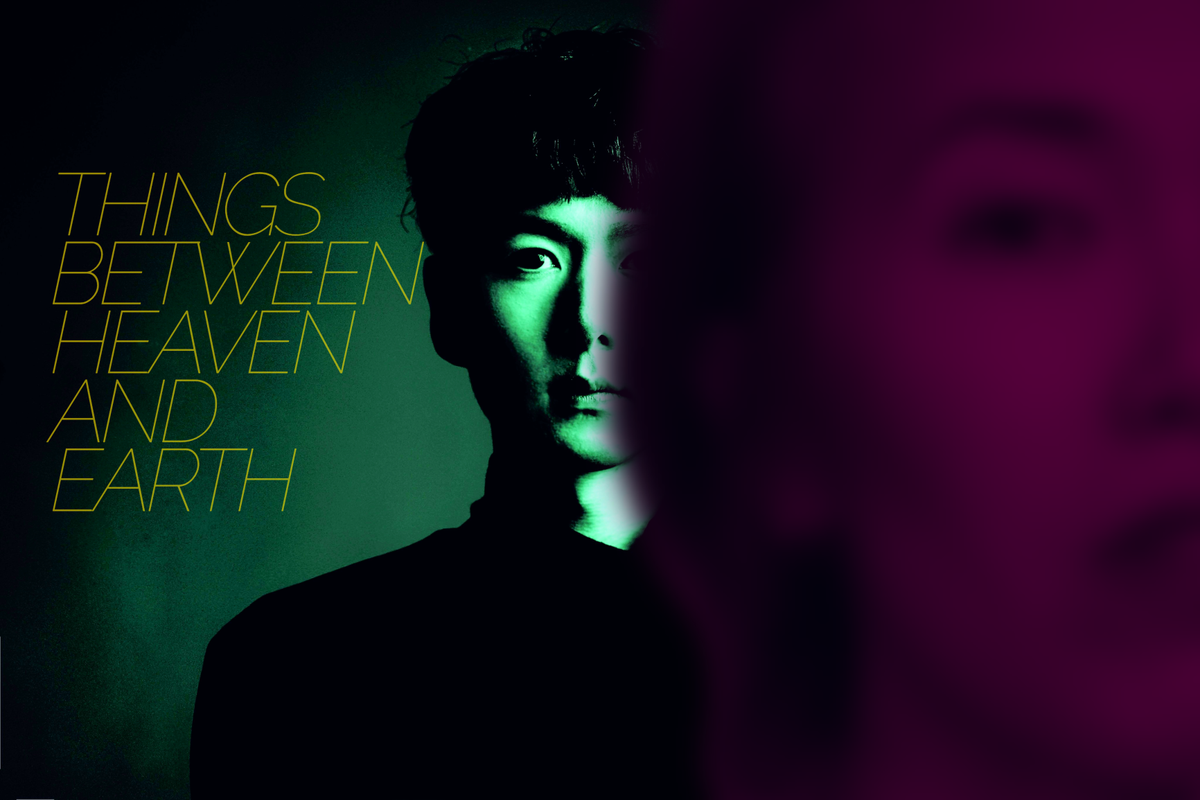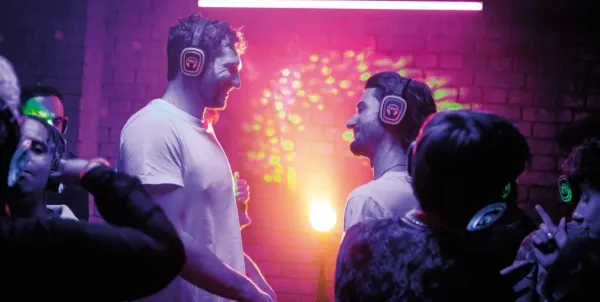Theatre Watch: Things Between Heaven and Earth
A play by Jun Noh.

Things Between Heaven and Earth is a psychological thriller that depicts the aftermath of a widow discovering her husband's affair and murder through a book written by their close friend, exposing everything to the whole world. This explosive descent into human psychology explores the things we thought we knew and the truth that prevails.
We caught up with writer and performer Jun Noh for a behind-the-scenes look at the production.
What was your inspiration for this story?
The creative process of writers has always fascinated me, especially when they draw from their own lives, which can be particularly insightful for exploring intimate subjects such as one’s identity.
Inspired by this, I wrote a flashback scene featuring an interview with a moderator during Eric’s book launch, where he discusses his perspective on writing a novel based on the real people around him. I then shifted the focus to his childhood friend, May, to see the aftermath of the book, which forms the emotional core of the play.
How challenging is it to write a psychological thriller for the stage?
A lot of the tension in a psychological thriller comes from the dialogue, as characters try to read between the lines. Maintaining that ambiguity while still holding the audience’s attention is the biggest challenge.
Additionally, the actors must create the right atmosphere on stage, so casting the right actor for the role of May was crucial for the play’s success. We are lucky to have Marina.
There are no throwaway lines in the play - every word is used as a weapon. For example, May’s line, "You’re not young!" was written to be a weapon.
While all the other auditionees used it to pacify my character Eric, Marina instinctively delivered it as intended, which showed she understood the role from the start.
Memories are inherently subjective, but they often enable us to interpret our experiences in a way that helps us to navigate through the complexity of our lives. Is this story an example of where revealing the "truth" does more harm than good?
The word 'truth' is a peculiar one and is used many times in the play. One of the important themes of the play is the clash between two perspectives.
The play highlights the importance of the Asian British and American church as a central hub for assimilation for the first and second generations. May has a very conservative Christian point of view, where truth is The Absolute - that which accords with God as a divine principle, that which is, has been, and ever will be, that which eternally is.
In contrast, Eric, who is a lapsed Christian, represents truth pluralism, an important concept in current literature.
There are multiple concepts of truth, or the term ‘true’ itself is ambiguous. Eric uses the phrase ‘my truth’ in the play and constantly warns May to stop digging into the truth.
To see whether the truth does more harm than good in this narrative, you should watch the ending and judge for yourself. No spoilers!
One of the themes that you're exploring is the ethics of writers using real-world experiences as material. Is that something that you've personally had to grapple with?
Certainly. As someone who trained at a drama school, it reminds me of how to build a character.
Some people absolutely believe that you have to use your own memory to be authentic. Others argue that you have to create memories of the character from scratch, because using a memory of your dead dog is not going to prepare you to play a person who has lost a child. There is no wrong answer to this.
The biggest difference is that an actor's internal mechanism is hidden from the outside world, while a writer’s work will eventually be published.
In a way, every creative uses their own prism to understand a certain narrative, but the writer’s perspective is the most exposing.
One of the joys of putting a writer at the centre stage is that I can delve into this subject through his words.
There’s also a meta element to it - Eric, drawn from some of my own experiences - faces criticism for using his personal life as inspiration for his novel in the play.
However, I won't disclose which parts are real and which are fictional, even though many writers cleverly use this ambiguity as a marketing tool.
By changing names, you can write about people without needing their permission. For instance, a recent Netflix show, Baby Reindeer, remains a topic of conversation due to this element.
Yet, in the writing world, this is not rare. Many writers draw from personal experiences, sometimes causing controversy.
If it damages your relationship with the world, it can be seen as cannibalistic.
What do you hope that people feel when they come to see Things Between Heaven and Earth?
It’s a very dense character study, as is typical of any psychological thriller.
In the journey of understanding Eric and May, you will delve into subjects such as the creative process, internalised racism and homophobia, public and personal personas, identity politics, the meaning of religion in modern society, and much more.
The audience doesn’t necessarily have to like them, but I hope they will understand them and have more empathy towards them after the show. Because we are all deeply flawed, just like the characters.
When's it on?
Performance Dates: Thursday 8th – Monday 26th August (not 13th), 13:00pm
Running Time: 60 minutes
Location: Underbelly Bristo Square (Jersey), Teviot Place, Edinburgh EH8 9AG
Box Office Tickets are available from www.underbelly.co.uk








